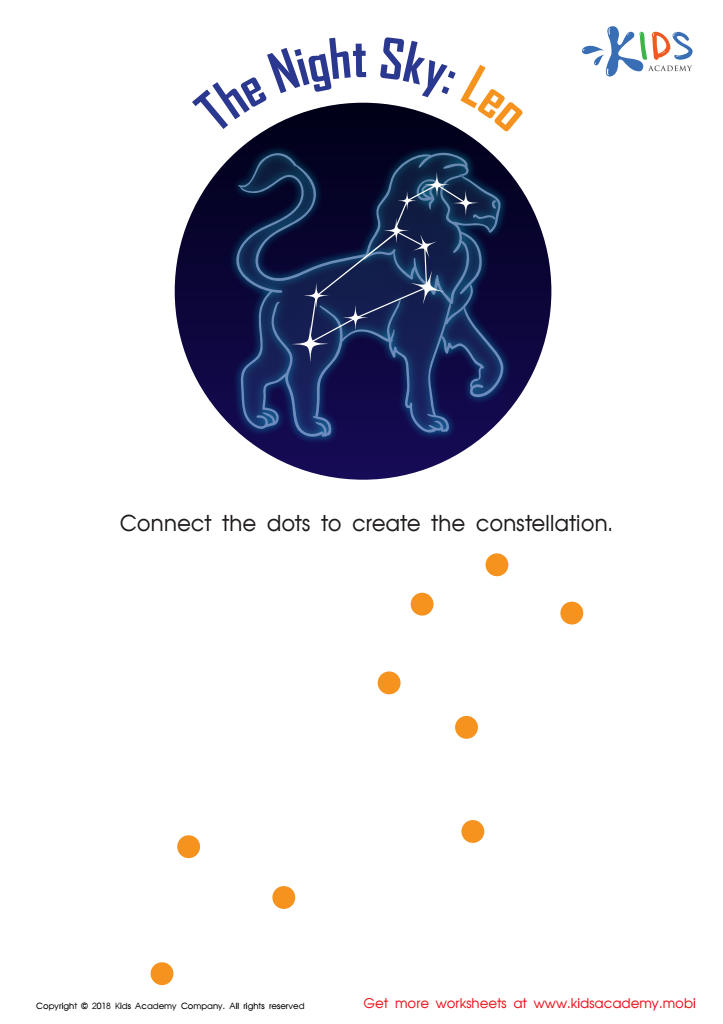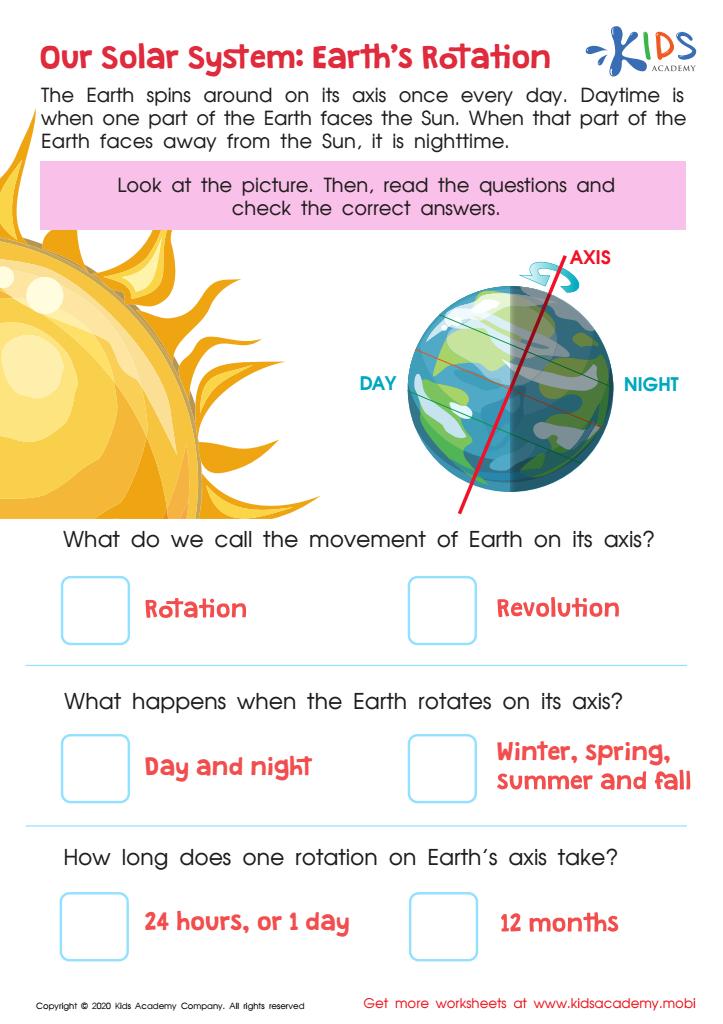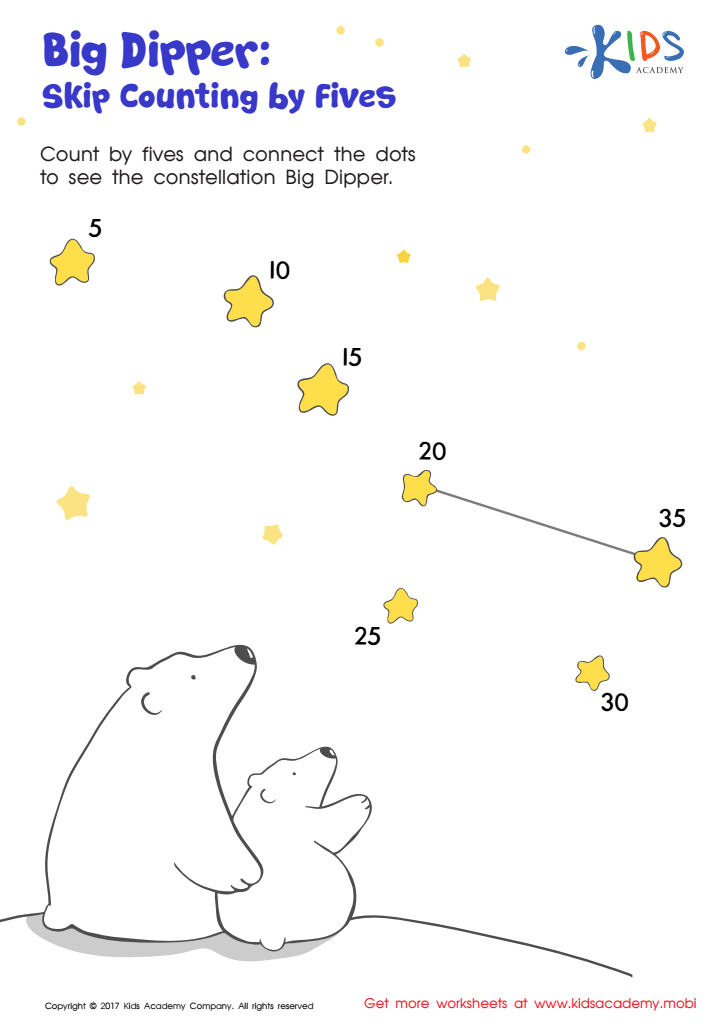Astronomy basics Normal Worksheets for Ages 4-6
3 filtered results
-
From - To
Discover the wonders of the universe with our "Astronomy Basics Normal Worksheets" designed specifically for kids aged 4-6. These engaging worksheets introduce young learners to fundamental astronomy concepts through colorful illustrations and fun activities. From identifying planets to understanding stars and the moon, each worksheet promotes curiosity and early learning. Perfect for classroom use or at-home exploration, our resources encourage hands-on learning while enhancing literacy and critical thinking skills. Boost your child's understanding of space in an interactive and enjoyable way! Explore our printable worksheets today and watch their interest in the cosmos soar!


The Night Sky: Leo Worksheet


Our Solar System: Earth's Rotation Printable
Astronomy is an essential field that sparks curiosity and wonder in young minds. For children aged 4-6, learning about the basics of astronomy can play a crucial role in their cognitive and social development. By introducing concepts such as stars, planets, and the moon, parents and teachers help nurture a sense of curiosity about the world beyond Earth. This foundational knowledge fosters critical thinking skills and encourages questions, promoting a love for science and exploration.
Moreover, astronomy can be integrated into storytelling, art, and play, making it accessible and fun for young children. Engaging in simple activities like stargazing or using visuals of planets encourages a bond between parents and children, enriching their shared experiences. Astronomy also enhances vocabulary as children learn new terms and concepts, laying groundwork for later academic skills.
Lastly, understanding our universe helps children develop a sense of wonder and appreciation for nature, promoting a lifelong learning attitude. Given the growing importance of science literacy in our society, incorporating astronomy basics in early education not only excites children's imagination but also prepares them for future learning in a world driven by science and technology. Therefore, the importance of introducing astronomy basics early cannot be overstated.

 Assign to My Students
Assign to My Students





.jpg)














